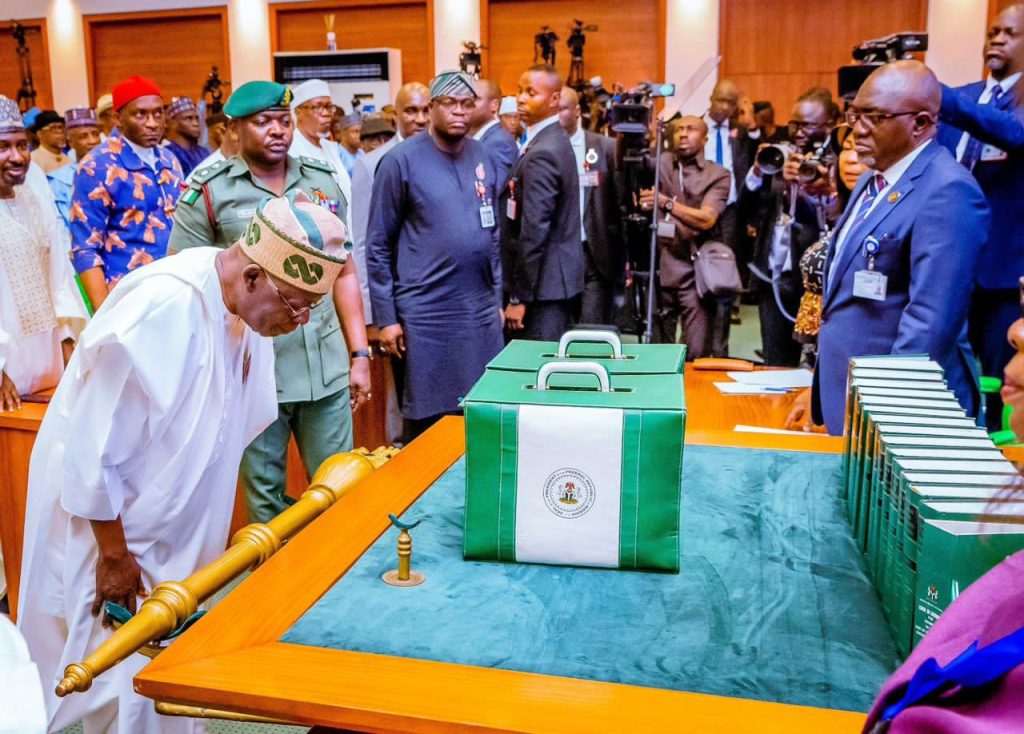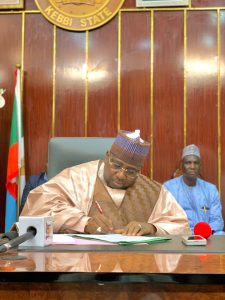
The Senate has passed the N27.5tn ‘Renewed Hope’ Budget for a second reading.
The budget was passed on Friday after various deliberations by senators who applauded the president for his good intentions for the country.
The budget was passed and referred to the Committee on Appropriations after being put to a voice vote by the Deputy Senate President, Jibrin Barau, who presided over the session.
The Committee on Appropriations is chaired by Senator Solomon Adeola.
President Bola Tinubu had on Wednesday presented to a joint session of the National Assembly the budget which he named, “Budget of Renewed Hope.”
The President pegged the budget deficit for the 2024 fiscal year at N9.18 tn.
President said the deficit represents 3.88 percent of Nigeria’s gross domestic product.
Tinubu stated, “The N9.18 trillion deficit is lower than the “N13.78 trillion naira deficit recorded in 2023 which represents 6.11 percent of GDP.
“The deficit will be financed by new borrowings totaling N7.83tn, N298.49BN from Privatization Proceeds and 1.05 trillion naira drawdown on multilateral and bilateral loans secured for specific development projects.”
He added that the administration will limit the inflation rate to 21.4 percent in 2024.
Adding that tax and fiscal policies are currently being reviewed.
The President said, “Our target is to increase the ratio of revenue to GDP from less than 10 percent currently to 18 percent within the term of this administration.”
To fund the budget, the president stated that fresh loans would be collected while exploring public-private partnership arrangements to finance critical infrastructure.
Commenting on the budget, Minister of Finance and Coordinating Minister of the Economy, Wale Edun, said the budget of 27tn is being financed less with deficit now than in the past.
He said, “So, there will definitely be fresh loans, and if those loans are maturing, they will be financed.
“And as always, you’re not going to be financing all the loans from the revenue, so they will definitely be fresh loans.
“There will be continuous reliance on loans but less so. The important thing is that the size of the budget that is being relied on from borrowing is downsised.”






